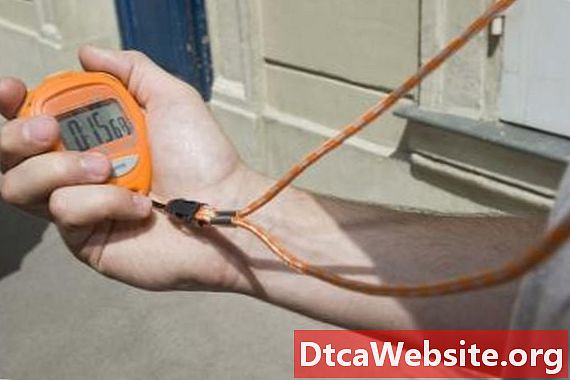
Contenu

"Engine hours" refers to the number of hours that your engine has been running since it was new. Many construction vehicles, trucks or other vehicles that spend a lot of time idling have a meter that tracks engine hours, which can give their operators a better handle on engine maintenance. Unfortunately, if your vehicle does not have an engine hour meter, there is no way to calculate its exact number of engine hours; however, if you know your average commute time and distance, there is an equation that can help you approximate your engine hours.
Step 1
Begin a typical week by resetting your trip meter to zero. Keep a stopwatch (one that will keep time for at least 20 to 50 hours) in your vehicle with you. Start the stopwatch each time you start your car, and stop it when you turn the engine off.
Step 2
After a week has passed, write down the total mileage from your trip meter and the total time from the stopwatch. Convert all minutes to hours for your time unit by dividing them by 60. Example: (30/60 = 0.5) 30 minutes = 0.5 miles; (15/60 = 0.25) 15 minutes = 0.25 miles; etc.
Step 3
Divide the mileage by the hours to determine your average travel speed for the week. Example: 375 miles driven in a week/18.5 hours = 20.27 average mph for the week
Divide your vehicles total mileage displayed on the odometer by your average mph for the week to determine an estimate of your engine hours. Example: 22,550 total miles/20.27 average mph = 1,112.48 engine hours
Tips
- The number calculated by this formula is only an estimation, as there is no way to determine an exact figure without an engine hours meter. If your weekly commute has altered during the period youve driven your vehicle, then that needs to be taken into consideration. In addition, if you take regular, long highway trips with the vehicle, then your engine hours are probably a bit lower. The longer the period you use to determine the average mph you drive, the more accurate your end result will be. If your stopwatch goes high enough, try going an entire month to achieve a closer estimate.
- You can purchase an engine hour meter for your vehicle if you do not have one.
Warning
- This method is intended only for drivers who have bought their vehicles new; it will obviously not be accurate if the vehicle was purchased used, as there is no way to tell what type of driving conditions a previous owner was operating under.
Items you will need
- Stopwatch


